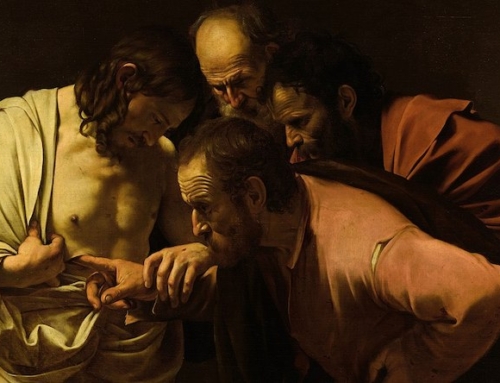Take a pagan city, throw in a reluctant preacher, and give him three days to spread the word. Nineveh, a city long accustomed to despoiling others, is herself threatened with ruin. The king does not wait out the forty days; instead, he leaps into action. By his order, all subjects—even the animals—will forego food. We can’t explain how, but the king could see that something was afoot. There may have been no natural indication—had there been, would the Lord have fished out Jonah for the task? The irony of the account is palpable: the pagan king recognized the gravity of the message more deeply, and more quickly, than had Jonah the Israelite.
Sometimes, however, it is up to the messenger to supply the zeal. On this day, in 1429, St. Joan of Arc knelt before the dauphin in the midst of his court. Granted, peasants generally knelt before royalty anyway, but this case was unique. Prince Charles had gone to great lengths to hide his position, disguising his dress and entering the crowd of courtiers before her entrance. Whether to win peace with the British or to test this would-be prophetess, he was content to suffer others to sit on his throne. In all likelihood, he was as reluctant to embrace Joan’s confident predictions as the king of Assyria was eager to accept Jonah’s condemnation. After hearing of so many French defeats, how could he handle such resolve? Would she speak as confidently before barons and counts as she did before peasants?
Had we not the documentation to prove it, the encounter that ensued would read like a fairy tale. St. Joan saw through the Prince’s disguise, and, compelled by her voices to do him homage, quickly corrected his dissimulations. Given that there was no natural explanation for this (photographs were still four centuries off), cynicism and disappointment melted into awe and docility. Perhaps she really was who she claimed to be: a peasant girl tasked by Another with a mission.
And docile he was. Within forty days, he had issued a commission to her to command the French army. A city fell three weeks later. Not into ruin, as Jonah warned, but under the fleur-de-lis, as Joan promised. Routed by the French, the British handed back the second largest city in the kingdom.
Charles had to be reminded of his royal dignity, and (it bears repeating) so do we. The message he received was particular to his time and place, but it was nothing new. Having been welcomed into the family of God at our Baptism, each of us, along with every Christian, has been invested with an even nobler dignity than any secular ruler could claim. A millennium before the Siege of Orleans, St. Leo the Great provided his flock with the context for their own royal dignity:
Let us put off then the old man with his deeds: and having obtained a share in the birth of Christ let us renounce the works of the flesh. Christian, acknowledge your dignity, and becoming a partner in the Divine nature, refuse to return to the old baseness by degenerate conduct. Remember the Head and the Body of which you are a member. Recollect that you were rescued from the power of darkness and brought out into God’s light and kingdom.
We have been given forty days and an invitation of our own. When Christ rides into Jerusalem in a matter of weeks, will we march with Him? Through the triumph of His grace, will we be able to lay our garments on the road, and lift up our hearts in welcome and exultation? Or will He weep over us who have not recognized the time of our visitation, unable (or unwilling) to respond to the call of One greater than Jonah or Joan?
✠
Image: El Greco, View of Toledo







